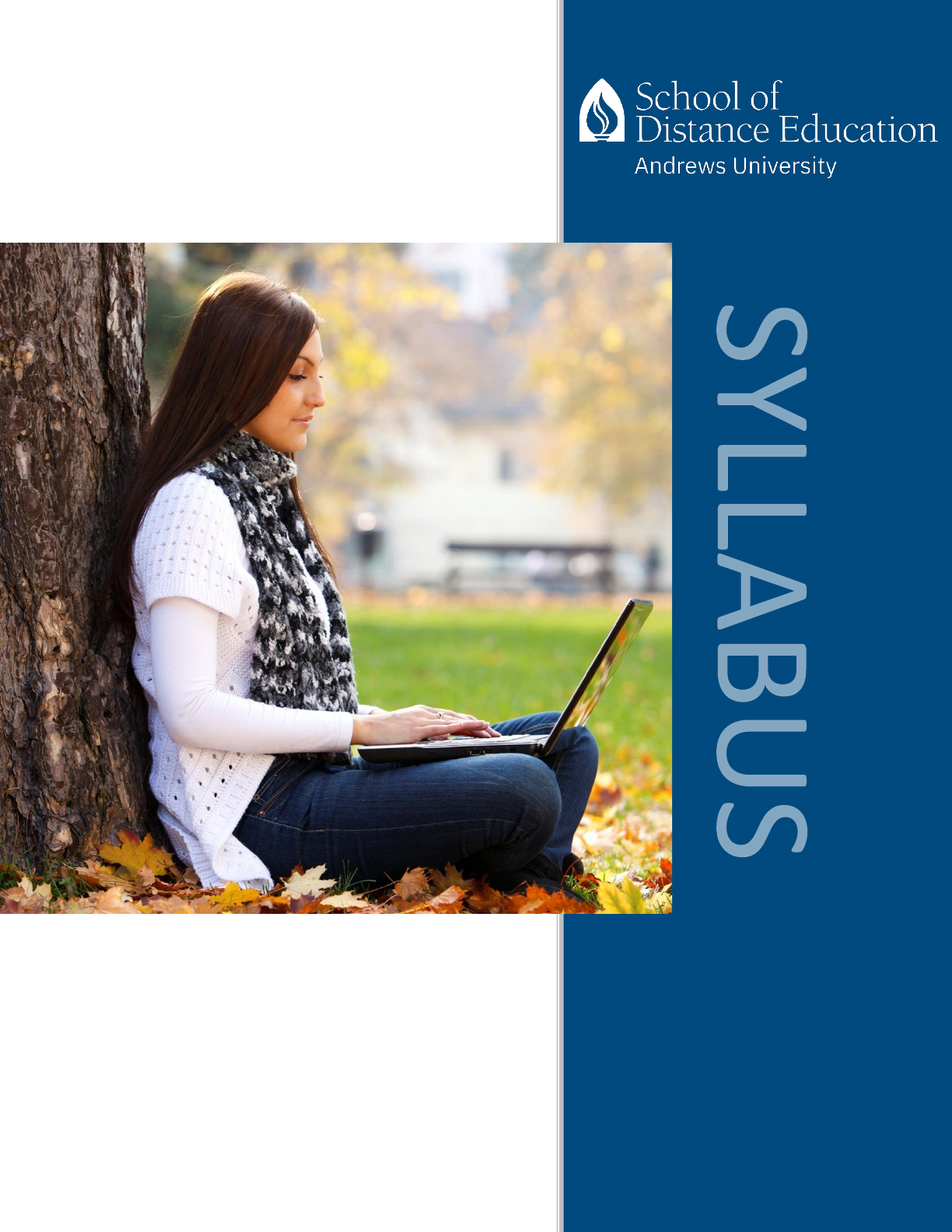
RELB 112 Introduction to the New
Testament
202221
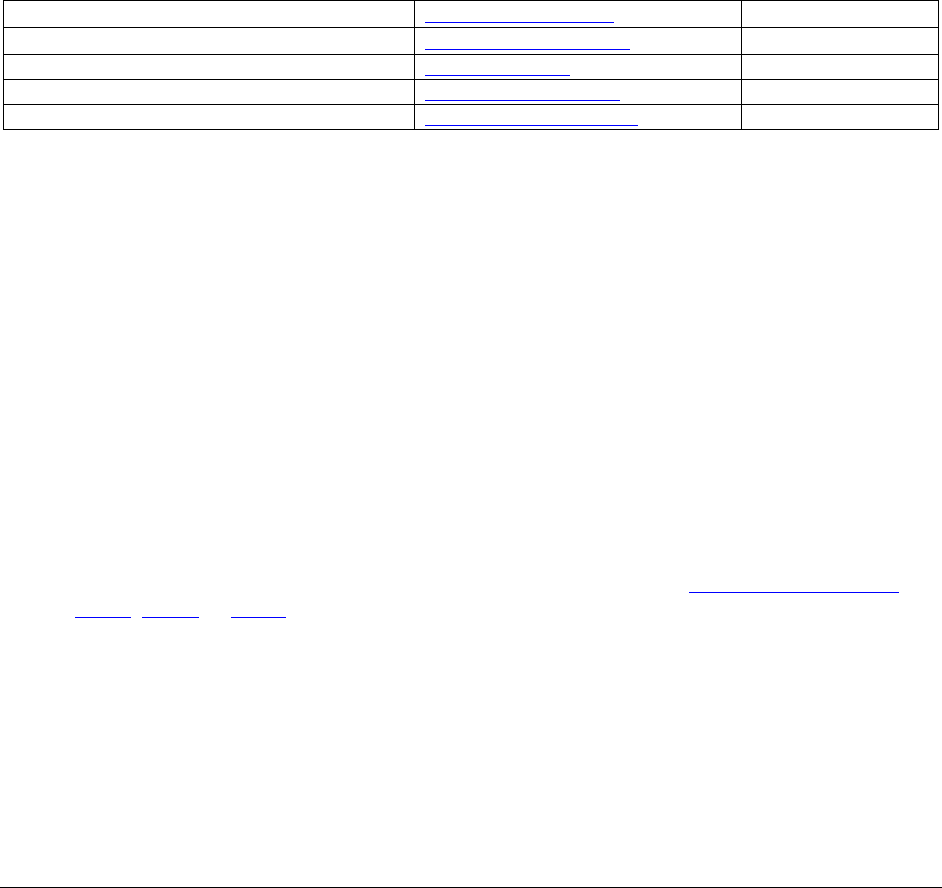
Last Updated: 1/10/2022 Page 2
RELB 112 Introduction to the New Testament
School of Distance Education
Self-Paced Format
This course follows a self-paced online format. You have 180 days from your selected start date
to complete the course. The last day to withdraw with a full refund is 15 days after your start
date.
Instructor Contact
Please refer to course in LearningHub for the teacher contact information.
Communication with the Instructor
It is important to remember that while the Internet is available 24 hours a day, your instructor is
not. You can expect that your instructor will respond to e-mail message to you within 2 business
days during the week and may not be available to respond on weekends.
Other Assistance
Username and password assistance
(269) 471-6016
Enrollment and withdrawal questions
(269) 471-6323
Technical assistance with online courses
(269) 471-3960
Exam requests and online proctoring
(269) 471-6566
Distance Student Services - any other questions
(269) 471-6566
Part 1: Course Information
Course Descriptions
An introduction to the writings and theology of the New Testament within their Jewish and
Greco-Roman cultural, geographical, and historical backgrounds.
Required Text/Material
Note to students: Textbooks for online courses may be purchased from any supplier. For
financial aid in payment, contact your financial advisor at the university where you are
completing your degree. Andrews University degree students who have confirmed that funds are
available will then purchase the books themselves and send receipts to their financial advisor for
reimbursement.
Carson, D. A., and Douglas J. Moo. An Introduction to the New Testament. Grand Rapids, MI:
Zondervan, 2005. Ebook ISBN: 9780310539551
The Seventh-Day Adventist Bible Commentary. Vols. 5-7. Available at www.egwwritings.org –
Vol. 5, Vol. 6, & Vol. 7.
Credit Hour and Commitment
This course is offered for 3 semester credits; therefore, it is expected that you will spend 135
total hours on this course. This course has 16 modules with 15 lessons, 2 exams, and knowledge
checks and short answers for each lesson. Each module represents a week of a typical semester
course. It is recommended that you budget 9 hours for studying and completing the activities
for each module. There are suggested schedules to accomplish this work included in this
syllabus.

RELB 112 Intro to New Testament Syllabus
Last Updated: 1/10/2022 Page 3
Institutional Outcomes:
3.a. Articulate a biblical worldview in order to interpret life, learning, and civic responsibility
from a Seventh-day Adventist perspective.
3.b. Address the needs of diverse communities in a manner consistent with Christian thought
and practice.
Program Learning Outcomes
Graduates of this program will be able to:
• Possess a foundational knowledge in the areas of Bible, history, and theology, from
a Seventh-day Adventist perspective. (Seek Knowledge)
• Express faith in the context of present society, history, theology, and be able to articulate the
Seventh-day Adventist view of life both orally and in writing. (Affirm Faith)
• Exhibit growth in Christian life skills. (Affirm Faith)
• Document an attitude of mission, experience & skills in personal service. (Change the World)
Student Learning Outcomes
By the end of the course, you will demonstrate the following competencies:
• To gain a deeper understanding of the respective New Testament books; learn about the
authors, the settings and circumstances, and when they were written; understand their
broad outline; and capture their main message.
• To provide background knowledge that will enable us to interpret the New Testament in
a way that does justice to the text and prevents us from reading our own agenda, our own
time, and our own culture, language, and context back into the text.
• To better appreciate the text and the message of the New Testament and apply it to our
present situation.
• To experience a closer relationship with the Lord of the New Testament and have a closer
walk with him.
• To be able to share the acquired knowledge and experience with others in a meaningful
way, for instance, in Bible studies and Bible study groups, in Sabbath School, and in
sermons.
Part 2: Course Methods and Delivery
Methods of Instruction
Methods of instruction include assigned readings from the textbook and the course material,
short open book knowledge checks and short answers on the readings, and two exams. Regular
participation in the course is essential to good performance.
Technical Requirements
• Computer: PC (Win 10 or newer) or MAC (10.14 or better)
• A webcam with microphone, and speakers (or plug in headset)
• Internet: 2.4 Mbps or faster DSL, cable or Wi-Fi connection
• Browser: Current version of Chrome or Firefox
• Software: Office 2013 or newer (Office 365 available here)

RELB 112 Intro to New Testament Syllabus
Last Updated: 1/10/2022 Page 4
LearningHub Access
This course is delivered online through LearningHub at http://learninghub.andrews.edu
Your username and password are your Andrews username and password. You need to activate
your username and password to access LearningHub.
Please do this online here:
https://vault.andrews.edu/vault/pages/activation/information.jsp if you haven’t
already. If you need assistance, call or email us: (296) 471-6016 or
mailto:helpdesk@andrews.edu.
If you need technical assistance at any time during the course, or to report a problem with
LearningHub, please email [email protected] or call (269) 471-3960.
Part 3: Course Requirements
Your Schedule
In Learning Hub, you will access online lessons, course materials, and resources. This course is
self-paced. You must complete the course within 180 days. This is the Consortium policy. You
may have a stricter deadline imposed by graduation, financial aid, or other restrictions.
Start by creating a schedule for completion of the course.
• Determine your deadline. Do you need a transcript sent to your home institution?
• Working from your deadline, count backwards. Allow 2 weeks after you take your final
exam for your final grade to be calculated. Allow another 2 weeks for the transcript to be
processed and sent.
• Now use the suggested schedules to create a schedule for yourself that ensures
completion 4 weeks before your deadline.
Submit your course plan to your instructor within Learning Hub AND discipline yourself to
make regular progress.
Assessment Descriptions
Knowledge Checks
There are fourteen one to five-question, multiple-choice Bible knowledge checks to be taken
throughout the course. They follow the topics for the individual weeks. The questions are
designed to guide the student to important points of knowledge in the New Testament books
and are open-book in form. They cover the material from the lecture notes as well as material
from the readings.
Short Answer
There are fifteen 10-15-question short answer assignments. The questions, similarly as with
the quizzes are designed to guide the student to important points of knowledge in the New
Testaments books and are open-book in form. They cover the material from the lecture notes
as well as material from the readings. The students are expected to show not only the
knowledge of the study material but also its understanding.
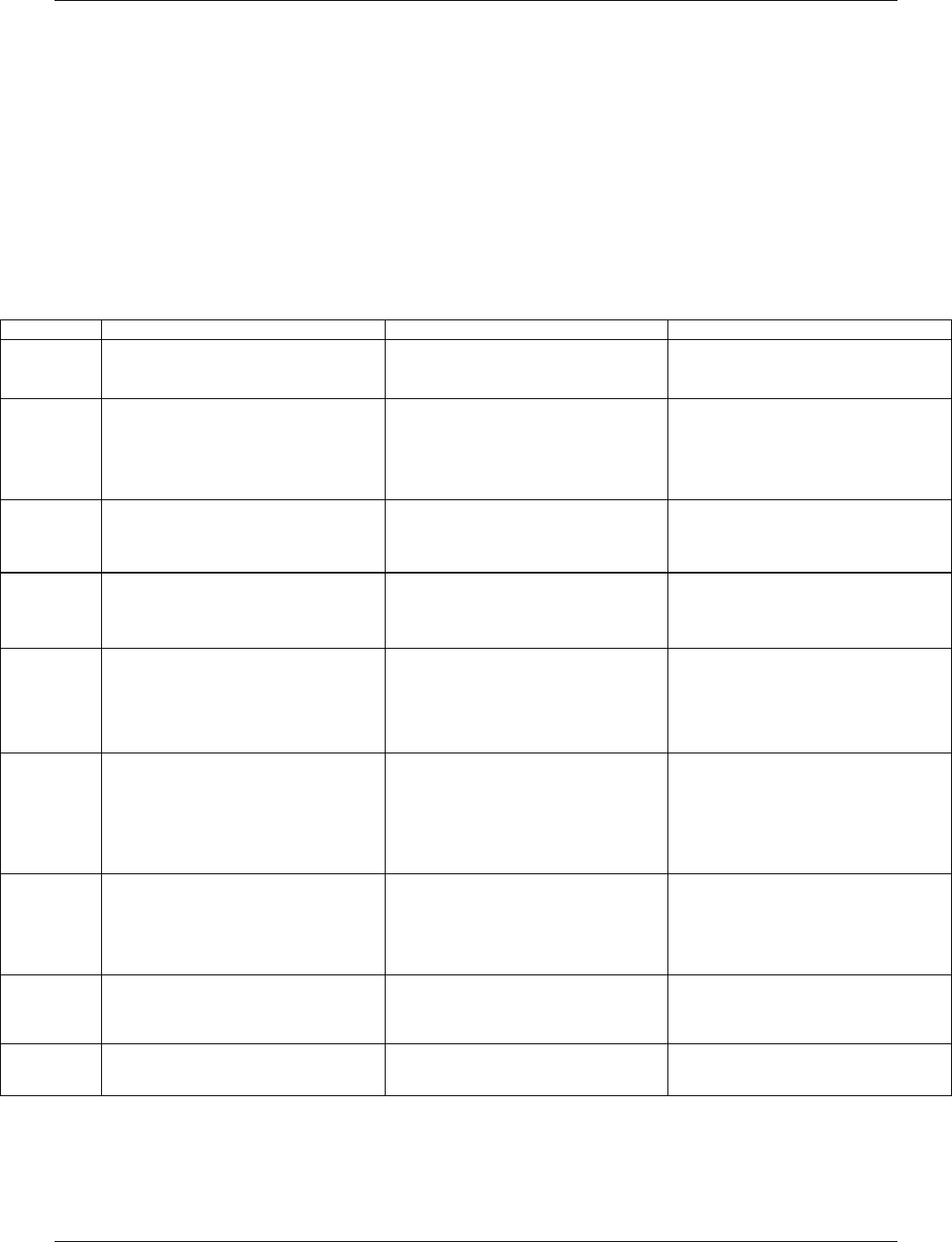
RELB 112 Intro to New Testament Syllabus
Last Updated: 1/10/2022 Page 5
Reading Requirements
Students are expected to read the materials listed below.
• The New Testament especially portions emphasized in the course or that are
unfamiliar to the student.
• Online lectures.
Assigned parts of the
The Seventh-Day Adventist Bible Commentary
and
An Introduction
to the New Testament
.
(See individual lectures for more information.)
Rubrics
Written Assignments Rubric
Criteria
Excellent
Acceptable
Substandard
Length
Concise, with every sentence counting;
stays close to the word limit; Not too
long or too short
Fairly concise; stays close to the word
limit; Not extremely long or short.
Excessively long or short.
Style
Is easy to follow. Written simply and
clearly. Covers the topic neatly without
veering off. Main points are clear and
few.
Is usually easy to follow, written simply
and clearly, and stays on topic without
veering off. There may be a few too
many points or a confusing sentence or
two.
Veers off topic. It is difficult to follow
main points or grasp writer’s
meaning in large sections of the work.
Writing is disorganized. There may be
overly complex language and/or
sentences are used.
Accuracy
Writing shows that student knows the
material taught and can apply it
accurately in a new situation.
Writing shows that student knows
much of the material taught and can
usually apply it accurately in a new
situation.
Writing displays a failure to understand,
recall, or apply much of the material in
new situations.
References
Quotes used are short and used
sparingly to directly support an idea. All
quotes are correctly referenced.
Occasionally uses too many short
quotes. Most quotes are correctly
referenced; a few mistakes may be
made in some references.
Quotes bible or text-book extensively or
uses incorrect referencing.
Personal
Comments
Narrative and description is kept to the
minimum needed for analysis. Personal
reflections are not long winded or
“preachy.”
Narrative and description are a bit too
lengthy. Personal reflections are
sometimes long winded or “preachy.”
Too much narrative or description at
the expense of analysis. Personal
reflection accounts for more than 50%
of material. (Exceptions are made for
assignments specifically requesting
primarily personal reflection.)
Depth/
Analysis
In-depth discussion of all points;
Evident that much thought has been put
into the subject matter and writing.
Conflicting perspectives are known,
considered, and discussed. Counter-
arguments are consistently anticipated
and refuted.
In-depth discussion of most points;
Evident that some thought has been put
into the writing. Most conflicting
perspectives are known and are usually
considered and discussed. Some
counter- arguments are anticipated and
refuted.
Writing has been thrown together, lack
of evidence of thoughtfulness. Much
Fluff and Fillers. Many Platitudes. Main
points stand alone with no
consideration or fair treatment of
alternative perspectives.
Grammar/
Language
Usage
Writing is clear and precise, not vague
or ambiguous. Uses accurate grammar,
syntax, spelling, capitals, and
punctuation. No text abbreviations.
The writing is usually clear. There may
be a few grammatical o
r syntactical mistakes.
Poor and inaccurate English grammar,
syntax, spelling, capitals, and/or
punctuation are pervasive. Major errors
in editing, use of slang, non-
conversational contractions, or texting
abbreviations.
Sentences
Every sentence counts. All sentences
have subjects and verbs. No run-on or
incomplete sentences.
Most sentences count and have subjects
and verbs. No more than one run-on or
incomplete sentence present.
Sentences are sloppy. Several
incomplete, run-on, or rambling
sentences present.
Paragraphs
Paragraphs are neat and separated with
no more than one main point per
paragraph.
Paragraphs are separated, usually with
only one main point per paragraph.
Paragraphs run together without regard
to individual points being made.
Structure is random.

RELB 112 Intro to New Testament Syllabus
Last Updated: 1/10/2022 Page 6
Exams
There are two exams in this course. The midterm exam covers material from Lessons 1-8, is
made up of multiple-choice questions and is worth 100 points. You will be allowed 120 minutes
to take this exam. This exam is worth 25% of your grade. The final exam covers material from
Lessons 9-15, is made up of multiple-choice questions and is worth 100 points. You will be
allowed 120 minutes to take this exam. This exam is worth 25% of your grade. Both exams
require proctoring.
Follow prompts in the course space to set up your exam session. In each module that contains
an exam, you will find what to review and what materials are allowed (if any) during the exam.
Please read the important information about taking exams and how online proctoring works at
www.andrews.edu/distance/students/exams.html. The follow the instructions that apply to
your situation on the exam request form to set up your exam session.
Please note that an exam code is never released to the student. All students must present photo
identification before each exam session. Exams can only be proctored after a deadline with
approval directly from the instructor to the Testing Center (sdeexams@andrews.edu or 269-471-
6566). No exam is returned to the student for review. The instructor, to aid studying for future
exams can provide feedback on exams.
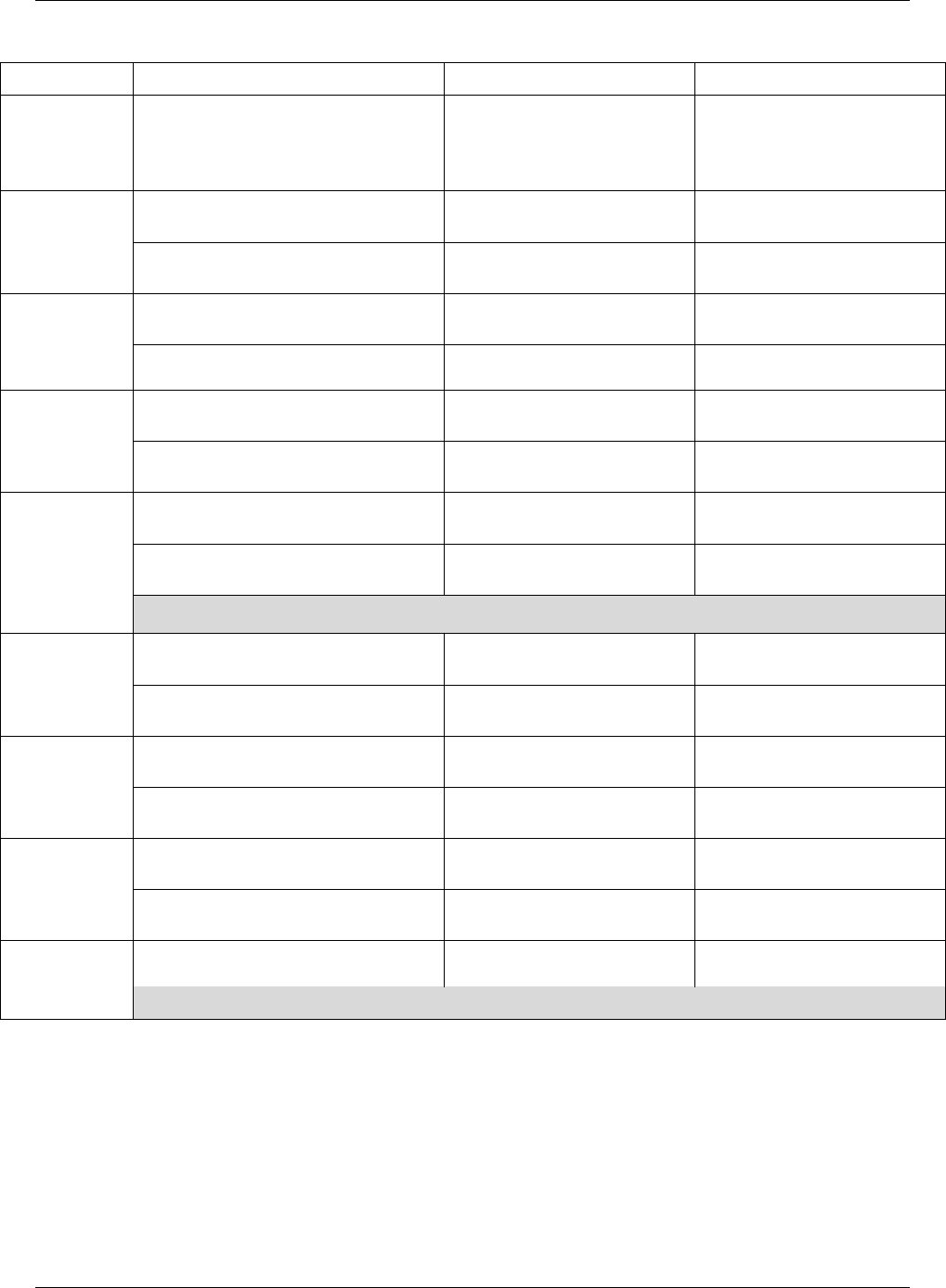
RELB 112 Intro to New Testament Syllabus
Last Updated: 1/10/2022 Page 7
Suggested schedule for completion in 8 weeks
Module
Lessons
Readings
Activities
Intro
These items will need to be completed
before you will have access to the rest of the
course
Orientation
Course Overview
Introductions
Academic Integrity
Student Introductions
Academic Integrity Quiz
Academic Integrity Statement
1
Lesson 1: The Background of the New
Testament
Reading Assignment found in
Lesson 1
Assignment 1 Knowledge Check
Assignment 1 Short Answers
Lesson 2: The Synoptic Gospels
Reading Assignment found in
Lesson 2
Assignment 2 Knowledge Check
Assignment 2 Short Answers
2
Lesson3: The Gospel of Mark
Reading Assignment found in
Lesson 3
Assignment 3 Knowledge Check
Assignment 3 Short Answers
Lesson 4: The Gospel of Luke
Reading Assignment found in
Lesson 4
Assignment 4
3
Lesson 5: The Gospel of John
Reading Assignment found in
Lesson 5
Assignment 5 Knowledge Check
Assignment 5 Short Answers
Lesson 6: The Acts of Apostles
Reading Assignment found in
Lesson 6
Assignment 6 Knowledge Check
Assignment 6 Short Answers
4
Lesson 7: The Letter to the Romans
Reading Assignment found in
Lesson 7
Assignment 7 Knowledge Check
Assignment 7 Short Answers
Lesson 8: First and Second Corinthians
Reading Assignment found in
Lesson 8
Assignment 8 Knowledge Check
Assignment 8 Short Answers
Proctored Midterm Exam
5
Lesson 9: The Earlier Pauline Letters
Reading Assignment found in
Lesson 9
Assignment 9 Knowledge Check
Assignment 9 Short Answers
Lesson 10: The Prison Letters
Reading Assignment found in
Lesson 10
Assignment 10 Knowledge Check
Assignment 10 Short Answers
6
Lesson 11: The Pastoral Letters
Reading Assignment found in
Lesson 11
Assignment 11 Knowledge Check
Assignment 11 Short Answers
Lesson 12: The Epistles to the Hebrews and
the Epistle of James
Reading Assignment found in
Lesson 12
Assignment 12 Knowledge Check
Assignment 12 Short Answers
7
Lesson 13: The Epistles of Peter and Jude
Reading Assignment found in
Lesson 13
Assignment 13 Knowledge Check
Assignment 13 Short Answers
Lesson 14: The Johannine Letters
Reading Assignment found in
Lesson 14
Assignment 14 Knowledge Check
Assignment 14 Short Answers
8
Lesson 15: The Book of Revelation
Reading Assignment found in
Lesson 15
Assignment 15
Proctored Final Exam
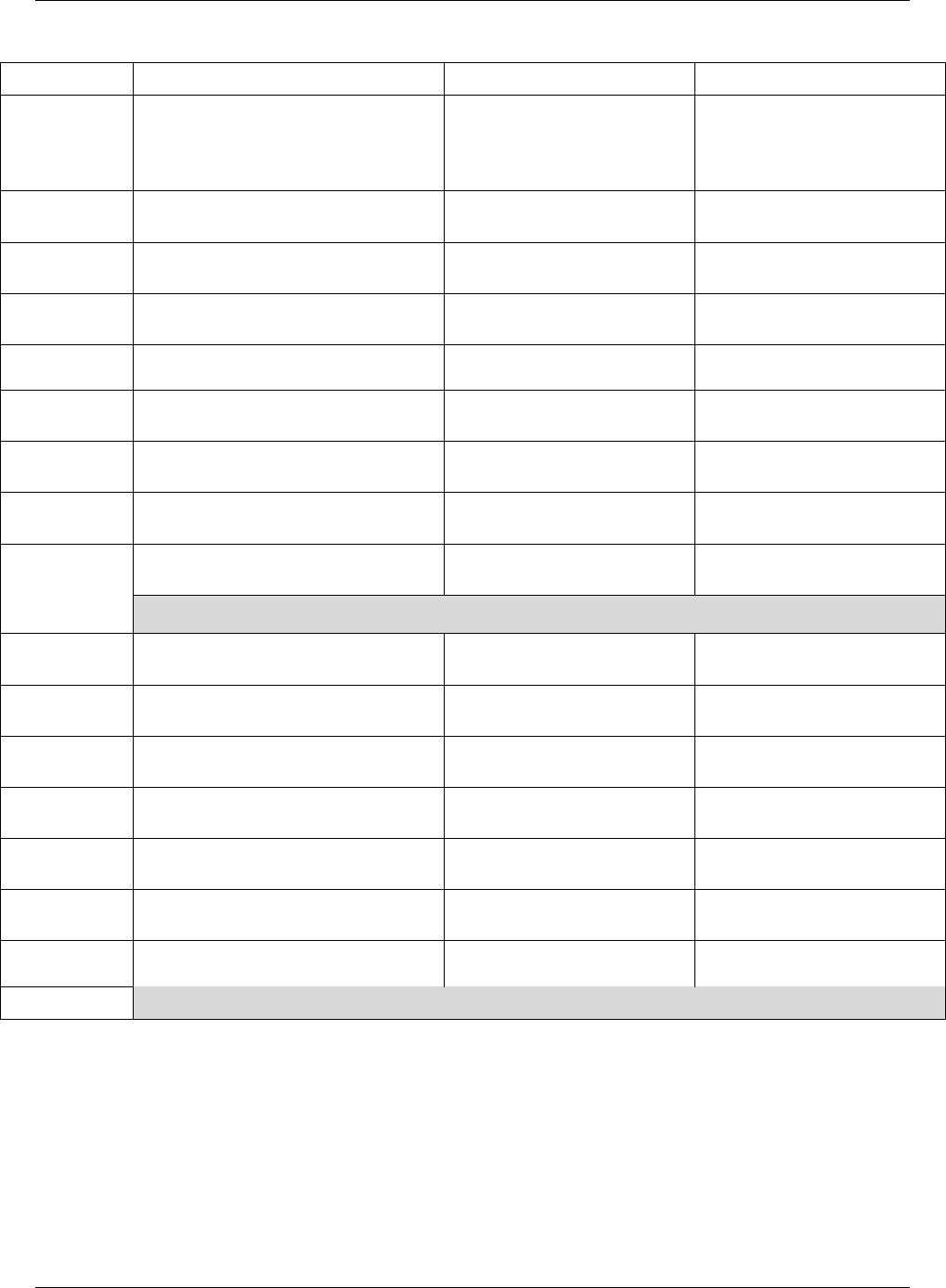
RELB 112 Intro to New Testament Syllabus
Last Updated: 1/10/2022 Page 8
Suggested schedule for completion in 16 weeks
Module
Lessons
Readings
Activities
Intro
These items will need to be completed
before you will have access to the rest of the
course
Orientation
Course Overview
Introductions
Academic Integrity
Student Introductions
Academic Integrity Quiz
Academic Integrity Statement
1
Lesson 1: The Background of the New
Testament
Reading Assignment found in
Lesson 1
Assignment 1 Knowledge Check
Assignment 1 Short Answers
2
Lesson 2: The Synoptic Gospels
Reading Assignment found in
Lesson 2
Assignment 2 Knowledge Check
Assignment 2 Short Answers
3
Lesson3: The Gospel of Mark
Reading Assignment found in
Lesson 3
Assignment 3 Knowledge Check
Assignment 3 Short Answers
4
Lesson 4: The Gospel of Luke
Reading Assignment found in
Lesson 4
Assignment 4
5
Lesson 5: The Gospel of John
Reading Assignment found in
Lesson 5
Assignment 5 Knowledge Check
Assignment 5 Short Answers
6
Lesson 6: The Acts of Apostles
Reading Assignment found in
Lesson 6
Assignment 6 Knowledge Check
Assignment 6 Short Answers
7
Lesson 7: The Letter to the Romans
Reading Assignment found in
Lesson 7
Assignment 7 Knowledge Check
Assignment 7 Short Answers
8
Lesson 8: First and Second Corinthians
Reading Assignment found in
Lesson 8
Assignment 8 Knowledge Check
Assignment 8 Short Answers
Proctored Midterm Exam
9
Lesson 9: The Earlier Pauline Letters
Reading Assignment found in
Lesson 9
Assignment 9 Knowledge Check
Assignment 9 Short Answers
10
Lesson 10: The Prison Letters
Reading Assignment found in
Lesson 10
Assignment 10 Knowledge Check
Assignment 10 Short Answers
11
Lesson 11: The Pastoral Letters
Reading Assignment found in
Lesson 11
Assignment 11 Knowledge Check
Assignment 11 Short Answers
12
Lesson 12: The Epistles to the Hebrews and
the Epistle of James
Reading Assignment found in
Lesson 12
Assignment 12 Knowledge Check
Assignment 12 Short Answers
13
Lesson 13: The Epistles of Peter and Jude
Reading Assignment found in
Lesson 13
Assignment 13 Knowledge Check
Assignment 13 Short Answers
14
Lesson 14: The Johannine Letters
Reading Assignment found in
Lesson 14
Assignment 14 Knowledge Check
Assignment 14 Short Answers
15
Lesson 15: The Book of Revelation
Reading Assignment found in
Lesson 15
Assignment 15
16
Proctored Final Exam
Completing Assignments
All assignments for this course will be submitted electronically through LearningHub unless
otherwise instructed. Assignments and exams must be completed within 180 days of course
registration date. This timeframe is subject to change depending on deadlines set by your home
institution.
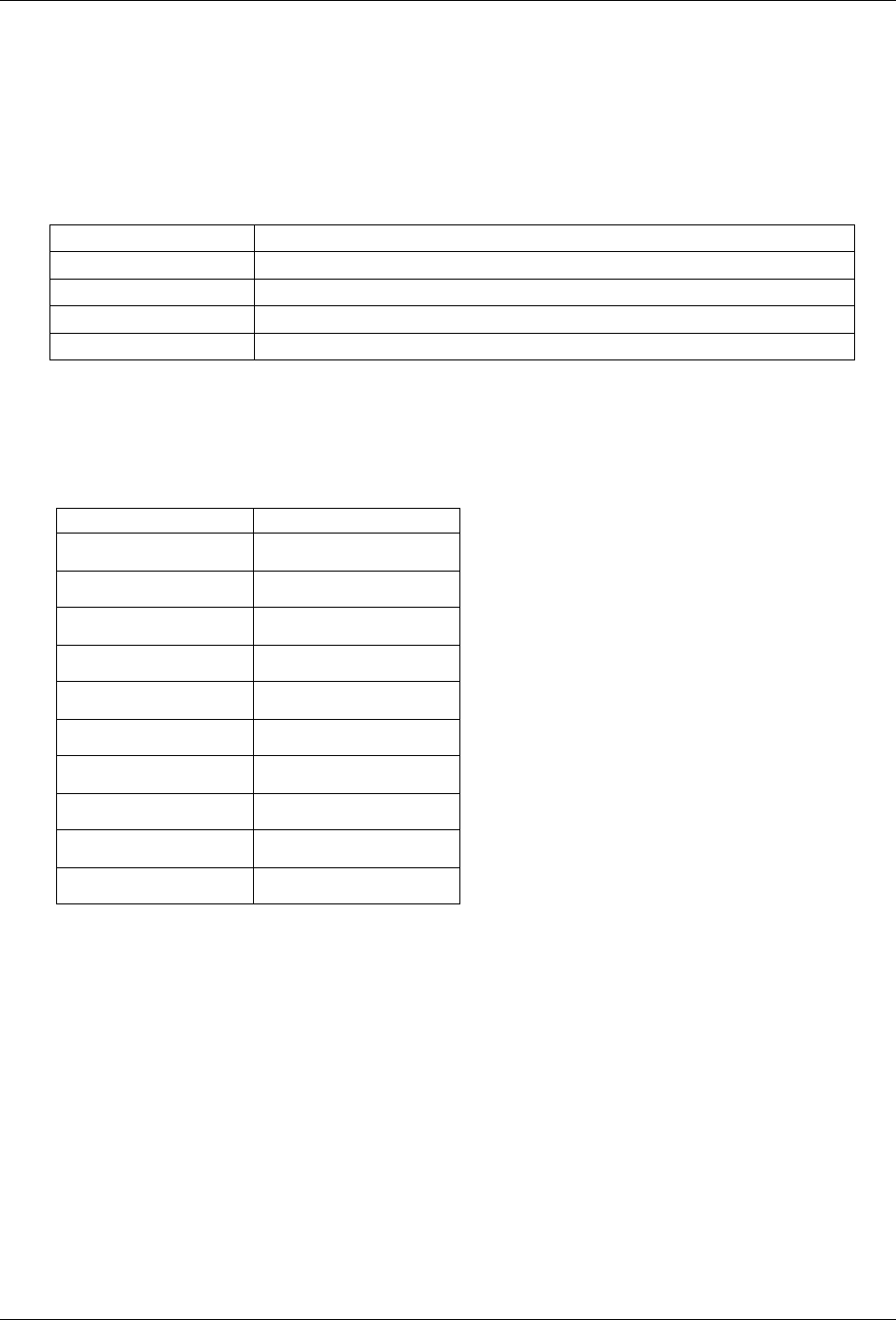
RELB 112 Intro to New Testament Syllabus
Last Updated: 1/10/2022 Page 9
Part 4: Grading Policy
Graded Course Activities
Your final grade will be the result of four components: Assignments 1-15 (50%), and Midterm Exam
(25%) and Semester Exam (25%). You will need to complete every Assignment, the Midterm Exam,
and the Semester Exam before a grade can be issued.
Viewing Grades in Moodle
• Click into the course.
• Click on the Grades link in Administration Block to the left of the main course page.
Letter Grade Assignment
Letter Grade
Percentage
A
93-100%
A-
90-92%
B+
88-89%
B
83-87%
B-
80-82%
C+
78-79%
C
73-77%
C-
70-72%
D
60-69%
F
0-59%
Percent %
Description
50
Assignments 1-15
25
Midterm Exam
25
Semester Exam
100
Total Percent Possible

RELB 112 Intro to New Testament Syllabus
Last Updated: 1/10/2022 Page 10
Part 5: Course Policies
Withdrawal and Incomplete Policies
The current withdrawal policy can be found online at
https://www.andrews.edu/distance/students/gradplus/withdrawal.html. The incomplete policy
is found online at http://www.andrews.edu/weblmsc/moodle/public/incompletes.html.
Maintain Professional Conduct Both in the Classroom and Online
The classroom is a professional environment where academic debate and learning take place.
Your instructor will make every effort to make this environment safe for you to share your
opinions, ideas, and beliefs. In return, you are expected to respect the opinions, ideas, and
beliefs of other students—both in the face-to-face classroom and online communication.
Students have the right and privilege to learn in the class, free from harassment and disruption.
Academic Accommodations
Students who require accommodations may request an academic adjustment as follows:
1. Read the Andrews University Disability Accommodation information
at https://www.andrews.edu/services/sscenter/disability/
2. Download and fill in the disability form
at http://www.andrews.edu/services/sscenter/disability/accommodationsreqform.pdf .
Preferably type answers. To save a digital copy, 1) print to file and save or 2) print and
scan. Email the completed form and disability documentation (if any)
to success@andrews.edu or fax it to (269) 471-8407.
3. Email sdestu[email protected] to inform the School of Distance Education that a
disability has been reported to Student Success.
Commitment to Integrity
As a student in this course, and at the university, you are expected to maintain high degrees of
professionalism, commitment to active learning, participation in this course, and integrity in
your behavior in and out of this online classroom.
Commitment to Excellence
You deserve a standing ovation based on your decision to enroll in, and effectively complete this
course. Along with your pledge of “commitment to Integrity” you are expected to adhere to a
“commitment to excellence.” Andrews University has established high academic standards that
will truly enhance your writing and communication skills across the disciplines and in diverse
milieu with many discourse communities in the workplace.
Honesty
Using the work of another student or allowing work to be used by another student jeopardizes
not only the teacher-student relationship but also the student’s academic standing. Lessons may
be discussed with other students, tutors may help to guide a student’s work, and textbooks,
encyclopedias and other resource materials may be used for additional assistance, but the actual
response must be the student’s own work. A student who gives information to another student
to be used in a dishonest way is equally guilty of dishonesty.
Any violation of this policy will be taken before the Higher Education Academic and Curriculum
Committee for appropriate punitive action.

RELB 112 Intro to New Testament Syllabus
Last Updated: 1/10/2022 Page 11
Copyright © 2022 by Andrews University.
All rights reserved. No part of these course materials may be reproduced, stored in a retrieval system, or transmitted by any form or by
any means-electronic, mechanical, photocopying, recording, or otherwise-except as may be expressly permitted by the applicable
copyright statutes or in writing by Andrews University
